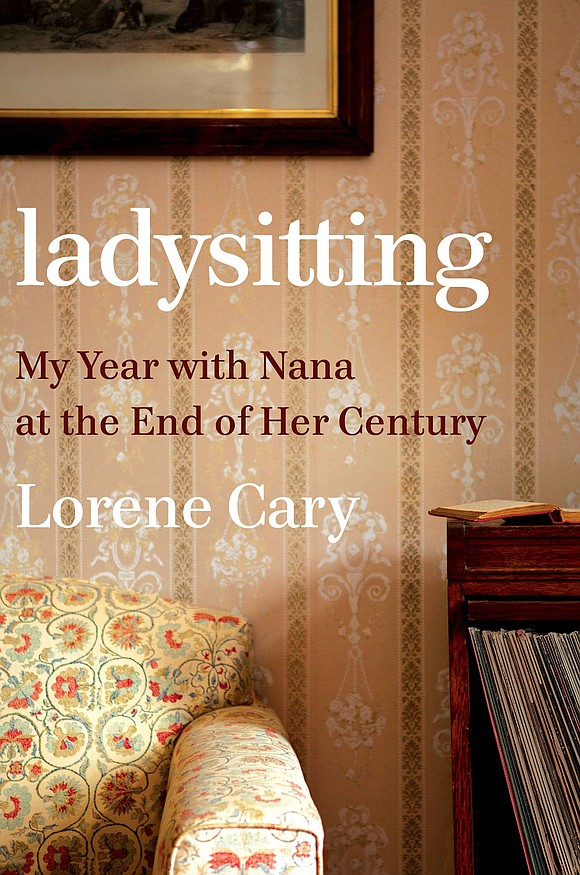“Ladysitting: My Year with Nana at the End of Her Century” by Lorene Cary
Terri Schlichenmeyer | 5/24/2019, 12:33 p.m.

You were their hope for the future.
For your elders, your birth represented things they wished would happen but that they’d never know. It was a joy for them to see you come into the world but for you, as in the new book “Ladysitting” by Lorene Cary, it’s harder to see them go.
When it comes to children, “spoiling” is a word that Black adults particularly hate to hear, but that’s what Lorene Cary says she got from her Nana.
Some of Cary’s earliest memories are of Nana’s sun-splashed New Jersey apartment, make-believe play, and being cherished. Nana didn’t indulge her completely – Cary had rules to follow – but Nana showered love and paid attention, two things Cary needed most.
Back then, Lorene H. Jackson had been a formidable force, a no-nonsense, feisty and independent, powerful businesswoman who still went to her Philadelphia office well into her nineties. A decade later, the summer she turned 100, a bladder infection set her low and she became frail, sometimes rattled. Because there were complications and family issues, Cary moved Nana into her home, a rectory near the church where Cary’s husband was a minister.
On both sides, it would take some getting-used-to.
The Cary family was a busy one: there were older children in the household, Cary had founded a growing non-profit to nurture, and there was a congregation to attend to. For her part, Nana could be irascible; she obviously hated being dependent, fretted about her possessions, and she couldn’t be alone for long.
Tensions rose. And then Nana began to seriously decline.
Falls and confusion became all too common. Nana’s hearing, which hadn’t been good for some time, worsened. And yet, she outlived her allotted hospice time, and her memory remained relatively sharp. She had enough spring in her life to make demands and to keep connections to family and friends.
Still, there was no denying it: Cary’s grandmother was dying…
Open the cover of “Ladysitting,” and you’re immediately yanked into a story with an ending you already know. Get past that initial, irresistible pull, though, and it may feel like a challenge to continue: author Lorene Cary seems to lose focus.
Was that done accidentally, or by design?
Doesn’t matter, because it works to show readers what it’s like to care for someone who’s elderly or terminally ill, while trying to do self-care and maintain some amount of control over the uncontrollable. There’s linear thought here, but only enough to keep readers awake. Frustration comes roaring through, but not so that compassion slips. Confusion is everywhere in this tale, but it doesn’t forsake compassion. Cary adds careful amounts of family history for clarity, even daring to include occasional humorous anecdotes – not inappropriately, but in enhancement of what is one of the more deftly-written, truthful accounts in this genre.
The key here is patience because this is a tough story to know. That’s especially true for millennials and older GenXers: “Ladysitting” is good, but it could offer a small glimpse into your future.



